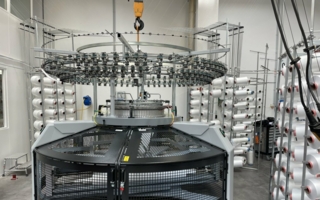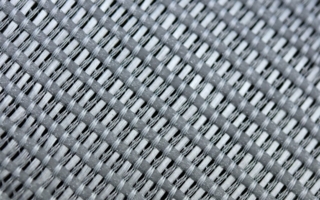19/11/2019 – Fashion on Demand from Lectra — auf Deutsch lesen
Balsan updates production
French company Balsan, a long-established producer of workwear and uniforms, is adding the latest technology to its 100+ years of expertise.
Individual company clothing, made-to-measure uniforms and personal protective equipment – the professional and workwear market is subject to the same trends as the ready-to-wear sector. Thanks to digitalisation and changing customer requirements, mass production is not going unchallenged even in this sector. Customisation is the growing trend and the trade is demanding flexible reordering.
The manufacturers’ response: on-demand production
The company, founded in 1850 and a major player in the professional and workwear sector, trusts in a blend of tradition and modernity. With new cutters and the software solutions from Lectra’s ‘Fashion on Demand’, the company has updated its production systems to utilise to the full the Group’s traditional handcraft skills.
Stephane Quiniou, Production and Quality Manager at Groupe Marck:
“Fashion on Demand provides us with a flexible approach to creating well-fitting and personalised models for the production of our clothing. This will improve overall performance; we’re expecting an increase in output of up to seven percent.”
Made to order: uniforms that aren’t completely uniform
The professional and workwear market is notable for its wide range of clothing types and materials. Making a uniform for police officers in the French Republican Guard involves very different handcraft techniques and ergonomics from producing personal protective equipment, for example. “Previously we had to process each order individually, which was very time-consuming,” explains Quiniou. “Designs that once required hours of adjustment can now be processed automatically as soon as our model developers have received the data.”
Another of Balsan’s aims was to centralise control of production, which is shared across a number of sites in France.
As a solution to this, new cutters have been provided in production, while cutting orders are standardised across all sites. “With a single click of the mouse, the cutting order generated in Calais can trigger a specific activity at our Châteauroux site,” says Quiniou. “This allows us to react far more quickly and more flexibly, and hence to respond more rapidly to the customer’s particular needs.”
No paper or plastic film – improving the ecological footprint
Lectra provides the company with a safe, high-performance cloud platform on which to process the sensitive and highly confidential data. This means that exchange of information can be kept secure even for models that are subject to particularly strict data protection, such as uniforms and protective clothing for the military.
Tomorrow’s challenges for Balsan, however, are not just technical but also of an ecological nature: “With Lectra’s new Fashion On Demand range, we have found energy-saving cutters that make the use of conventional materials such as paper and plastic film redundant, thereby improving our ecological footprint,” explains Quiniou.





